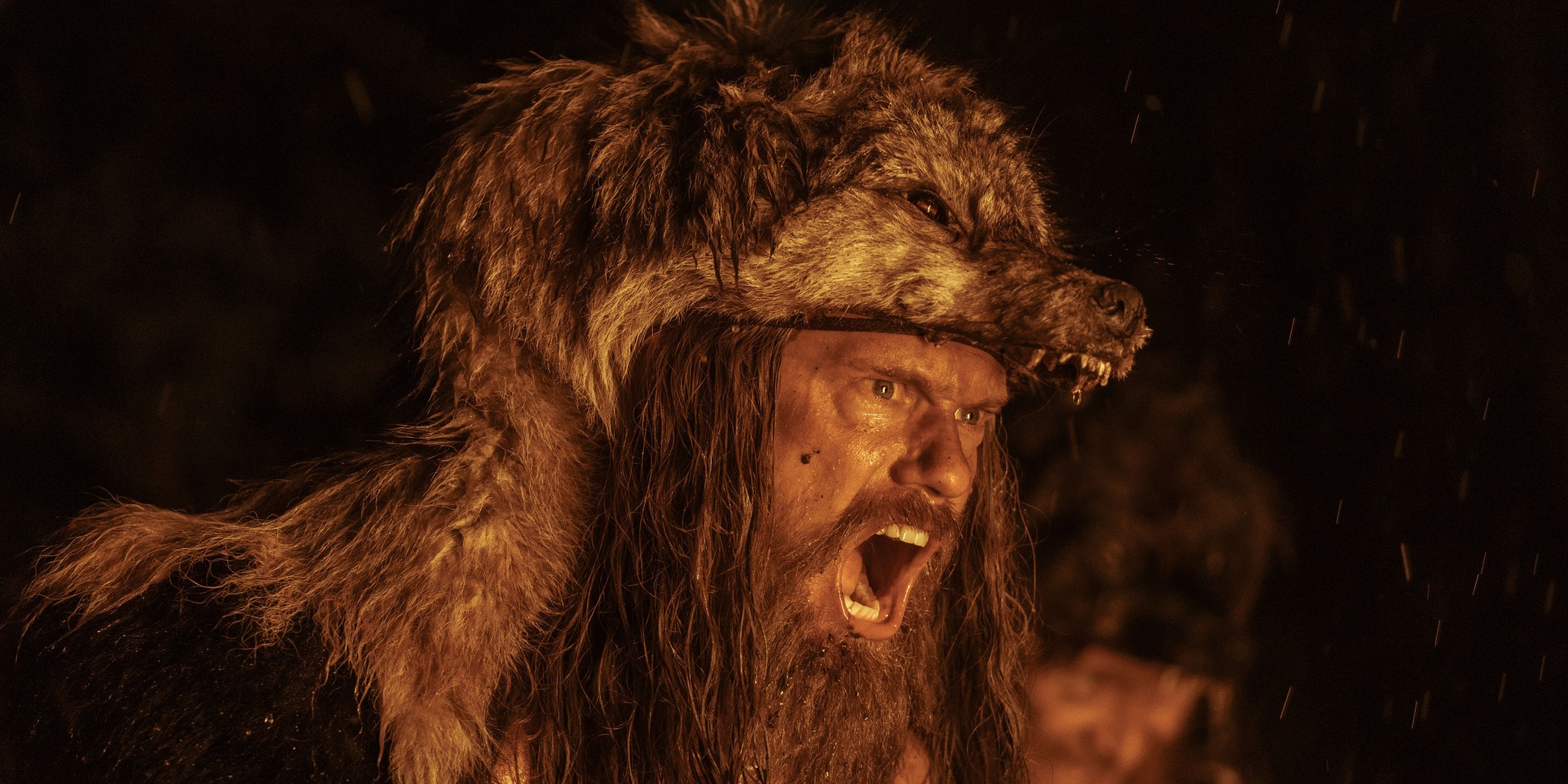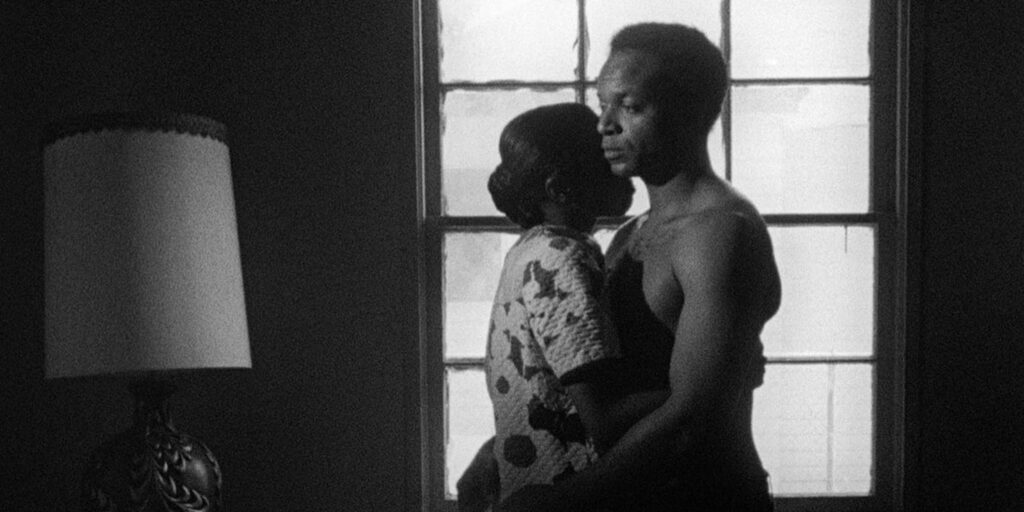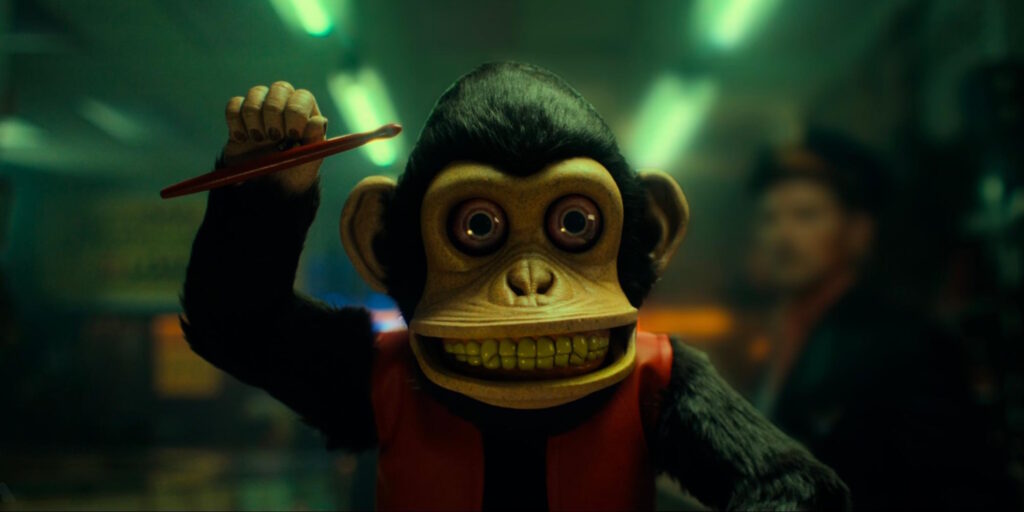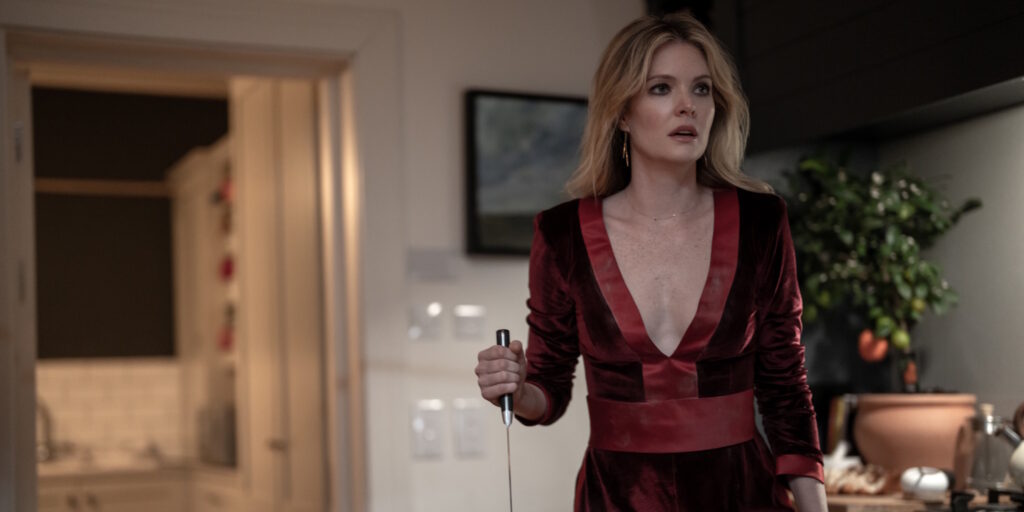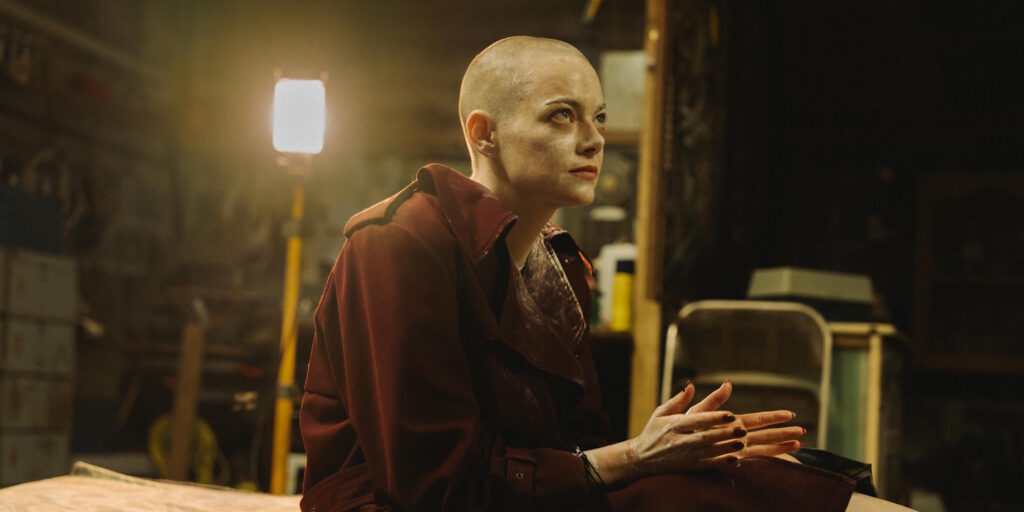[Originally published at Cinema St. Louis’ The Lens.]
A heady ritual concoction of pitiless Dark Ages brutality and dazzling mythic imagery, The Northman is every inch the bloody, howling Viking action epic that one would expect director Robert Eggers to birth into the world. If the esteemed American auteur’s third feature film feels a little conventional, it’s mostly due to the comparative bracing originality of his virtuosic folk-horror masterpiece The Witch (2015) and his cabin-fever freakout The Lighthouse (2019). The premise of The Northman is the kind of savagely straightforward affair that almost feels out of fashion in contemporary big-budget filmmaking. Stop me if you’ve heard this one before: An exiled prince seeks vengeance on behalf of his father, a righteous king murdered and usurped by his treasonous brother, who has taken the widowed queen as his bride for good measure.
If this sounds suspiciously like Hamlet – or, if you prefer, Legend of the Black Scorpion (2006) or The Lion King (1994) or Strange Brew (1983) – it’s because it is Hamlet. Or, more accurately, it is Eggers and Icelandic poet Sjón’s take on the medieval Danish legend of Amleth, which passed through various Latin, French, and English mutations before landing in the lap of William Shakespeare. Much as Eggers returned to the Puritan source of America’s nightmares in The Witch, here the filmmaker ushers the viewer back three centuries before Amleth’s name was ever inscribed on parchment. Amid the fire and ice of pagan Scandinavia, the viewer bears witness to a possible origin for the Western canon’s ur-tragedy, the grain of sand that begat the pearl.
However, The Northman is not the “real” story of Prince Hamlet, any more than the real King Lear can be found in 11th-century Welsh pseudo-histories. Around the sturdy mythic pillars of regicide-slash-fratricide and seething vengeance, Eggers and Sjón have fashioned an almost-original creation, a mud-and-gore-slicked work of historical verisimilitude spiked with fly agaric and raging testosterone. “Realism” isn’t really the right word, given that the story involves a prophecy from a blind Russian witch, a barrow wight guarding a magic blade, and a naked Viking duel in the caldera of an active volcano. It’s about as grounded as a Heavy Metal magazine cover. However, The Northman’s goal is not to re-create the past with perfect fidelity, but to thrust the viewer into a worldview 1,200 years removed from their own. This is not how the world was, but how it was seen: As a realm ruled by violence both sacred and profane, where destiny is as implacable as death and eternal glory arrives on celestial hoofbeats.
Young Prince Amleth (Oscar Novak) lives and breathes the war-etched rules of this world. The only child of King Aurvandil War-Raven (Ethan Hawke) and Queen Gudrún (Nichole Kidman), he has been raised to one day assume the throne of his father’s petty Nordic kingdom. Unfortunately, the king’s green-eyed brother Fjölnir has designs on that throne, and he’s not about to let a little thing like divine law stand his way. Shortly after Amleth’s coming-of-age ceremony – a feral, chthonian rite in which father and son lap blood and howl like wolves before Auvandil’s grinning jester-priest (Willem Dafoe) – Fjölnir and his collaborators ambush the king and cut him down like a dog. Amleth, however, evades the assassins and steals a boat, although he lingers just long enough to witness Fjölnir carrying away his screaming mother while the king’s loyalists are slaughtered. As he rows away from his shattered family and stolen future, Amleth spits an Arya Stark-worthy oath with every stroke of the oars: “I will avenge you, Father! I will save you, Mother! I will kill you, Fjölnir!”
Twenty years later, however, Amleth (now played by an absurdly buff Alexander Skarsgård) seems to have tabled revenge in favor of those reliable Viking pastimes, wanton slaughter and plunder. When the film catches up with him, the erstwhile prince is a wolfskin-clad berserker serving under the banner of a nameless warlord, reaving settlements in far Eastern Europe (“the land of the Rus’”). In the aftermath of one such raid, Amleth encounters a freshly blinded witch (Icelandic songstress Björk) who foresees that he will soon have his vengeance against Fjölnir. The seer’s words seem to stoke the embers of Amleth’s long-dormant hunger for retribution. When he later overhears that some of the captured thralls will be sent to “Fjölnir the Brotherless,” he breaks away from his fellow warriors, brands himself with a slaver’s mark, and slips aboard a longship bound for his uncle’s holdfast in distant Iceland.
Along the way, he befriends fellow slave Olga (Anya Taylor-Joy), a sharp-tongued sorceress who is shrewd enough to recognize him as one of the frenzied warriors who burned her village. She is open about her intent to escape her newfound bondage by any means necessary, and she and Amleth quickly strike up an alliance fueled by their shared clarity of purpose (plus a little animal lust). As it turns out, Fjölnir has not prospered from his treachery: Exiled from Norway by the high king, his holdings have been reduced to an isolated longhouse, a band of ragged warriors, and a herd of sheep. Fate might have humbled the king-killer, but this does not dissuade Amleth. Neither does the revelation that his mother has birthed Fjölnir a young son (Elliott Rose) during her captivity. Omens guide Amleth to a half-crazed Odin-worshipping hermit (Ingvar Eggert Sigurðsson), who in turn points him to a legendary sword. This blade can only be unsheathed at night, but it thirsts for the blood of traitors.
The broad strokes of this plot are almost disarmingly familiar. The Northman is, at bottom, a tale of righteous vengeance: A father is killed, a son kills the killer, roll credits. For this reason alone, Eggers’ third feature never feels quite as revelatory as The Witch or The Lighthouse, films in which spiritual terror and paranoid fantasy blurred into reality (or, in the latter film’s case, swallowed it completely). In comparison, The Northman almost feels like accessible big-budget Hollywood entertainment, a tale in which the chiseled hero announces to the heavens what he intends to do – kill, kill, kill, fuck, kill – and then does so with great enthusiasm.
Which isn’t to say that Eggers’ latest work is one that plays by the rules of some dog-eared screenwriter’s guide. The Northman has a habit of upending the viewer’s expectations about how revenge epics are “supposed” to work. The plot has an almost theatrical intimacy, encompassing just three key locations and a handful of characters. Fjölnir’s off-screen downfall to glorified shepherd punctures the assumption that Amleth will be gathering an army and storming his father’s former stronghold. From the moment that he arrives in Iceland in chains, the prince’s revenge becomes less about forward momentum than watching, planning, and waiting. To even describe the film as an “epic” feels a bit misleading. There are no sweeping battle sequences or meandering journeys through strange lands. The Northman’s marquee action set piece is essentially a massacre, one in which Amleth’s raiding party hacks their way through warriors and civilians alike, roaring with bloodlust – every gruesome detail captured in a pulse-pounding long take that follows along at the exiled prince’s eye level.
If the film’s structure and presentation feel a tad unorthodox, however, then its setting is downright heretical. The Northman drops the viewer into surroundings that feel markedly alien. On the well-worn anvil of treachery and revenge, the director and his collaborators have forged a strange, long-vanished world, one in which you-killed-my-father fury is virtually the only recognizable handhold. The Northman might be the most resolutely estranging historical epic since Hsiao-Hsien Hou’s The Assassin (2016), and yet it is also an immersive experience, a work of displacing magic that envelops the viewer in Amleth’s haunted, absolutist headspace. The reality conjured by the film’s crew – including production designer Craig Lathrop, set decorator Niamh Coulter, and costume designer Linda Muir – is undeniably vivid and transporting. However, the oceanic grasp of The Northman has as much to do with unflinching adherence to a pre-Christian mentality as it does with painstakingly re-created 9th-century clothing and furnishings.
Eggers’ film depicts a time and place completely divorced from contemporary notions of order, justice, and morality. The Northman sets this grisly, unsettling tone early, as Amleth’s raiding party rounds up the young, the elderly, and the infirm – who have little value as thralls – and burns them alive inside a locked house. A different film might have used this as a character-defining moment for its protagonist, obliging the hero to express a reassuringly anachronistic disgust with such barbarism. Instead, Amleth simply looks on in slack disinterest as his battle frenzy cools.
Although a few aspects of The Northman’s setting might be appealing to certain viewers – even the slaves get to partake in the mead-soaked woodland orgies, after all – it is overall a harsh and frightening place. For most folk in this world, their existence is dominated by violence and bondage, and the scant comforts offered by the unyielding Fates are decidedly cold. In a realm of such chaos, Amleth puts his faith in his own formidable strength and in the long arc of Odin’s retribution. Accordingly, his eye is watchful for signs from the All-father’s raven messengers and from the midnight-blue fox that seems to haunt his steps on the tundra. Such is his certainty in the witch’s prophecy that Amleth balks when opportunities to quickly and cleanly end Fjölnir’s life present themselves. He is destined to meet his foe at “the gates of Hel,” and to contravene this fate would be its own kind of blasphemy.
Of course, witches cannot foresee everything. For one, nothing is quite as it appears in Fjölnir’s longhouse, where motives are slippery and the distinctions between heroes and villains are a matter of perspective. For another, Amleth’s conspiratorial bond with Olga blossoms into something sweeter and more nourishing than either anticipated, and such feelings risk complicating his quest. Or they would, if there were any chance of Amleth being dissuaded from his vengeful path. “You must choose between kindness for your kin and hatred for your enemies,” the sepulchral voice of the king’s long-dead fool warns, but any true Viking knows that it’s really no choice at all. Blood must be repaid with blood.
The Northman opens in theaters everywhere on Friday, April 22.
